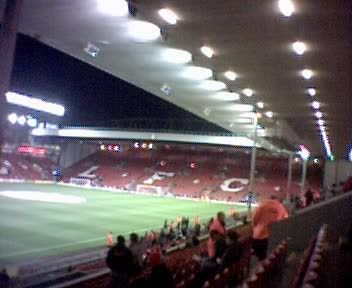Interesting read in The Times today, showing how the financial fair play rules are starting to take effect
For two weeks, even football seemed to stop to watch the Olympics. The millionaire players, the demanding managers, the extravagant owners and the wily agents who make up the cast of the game’s summer soap opera seemed to disappear from view.
Even without the distraction of London 2012, though, this summer seems quieter. With two weeks of the transfer window left, Barclays Premier League clubs have spent only £240 million on new players. Not bad for a nation in recession, but a considerable decrease on last summer’s £485 million outlay. The question is, why?
Is everyone waiting to sell before they buy?
According to a number of agents consulted by The Times, this is the message emanating from many of the Premier League clubs. Teams are determined not to add to bloated squads and will splash out on players only once space has been created on their wage bills. Roberto Mancini, the Manchester City manager, has already bemoaned the champions’ desire not to overload their squad, while Liverpool and Tottenham Hotspur are essentially reliant on the sales of Daniel Agger and Luka Modric, respectively, to balance the books.
Have Uefa’s looming Financial Fair Play rules had an effect?
Without question, according to Dan Jones, lead partner of Deloitte’s sports business group and one of the foremost analysts of football’s finances. “Even with an improved television deal looming, we’re seeing a more sustainable model, and that’s in part because we are already in the period that will be taken into account,” he said. “What clubs do now could impact their figures when the legislation kicks in next year. That was the aim and that’s very encouraging.”
Is Moneyball a factor?
More and more clubs across Europe are professing themselves devotees of the Moneyball philosophy espoused in the book of the same name. Even Adriano Galliani, vice-president of AC Milan, is referring to himself as being “just like Billy Beane”, the general manager of the Oakland A’s baseball team who defied financial weakness to compete. It is too easy to suggest that a book and a film have changed decades of thinking across football, but there can be no doubt that the principles are now common to most clubs: a desire to find young players, often in undervalued markets, and pay them a relatively low wage while building up their value. “There is more strategic thinking going into recruitment,” Jones said.
Have the examples of Rangers and Portsmouth stopped teams chasing the dream?
“It’s not a case of ‘there but for the grace of God,’ ” Jones says, “but what happened at Portsmouth certainly strengthened the Premier League’s resolve not to allow anyone else to follow that path. What’s happened at Rangers has proved that even big clubs can fail.” There are teams prepared to push the boat out — Paris Saint-Germain have spent more than £100 million building their side — but with spending down, they are all but unique in Europe.
Is this how it will be from now on?
In the short term, probably not. It is hard to think August will end with Robin van Persie still at Arsenal and Modric at Spurs. In 2011, Premier League clubs spent £100 million on deadline day alone. Beyond this year, though, there does seem to have been a change. FFP and the desire for youth have had their effect. “There will still be teams that go for it,” Jones said. “But hopefully the moderation we’ve seen is here to stay.”





 (Chelsea, Man C, PSG not included ofcourse).
(Chelsea, Man C, PSG not included ofcourse).

